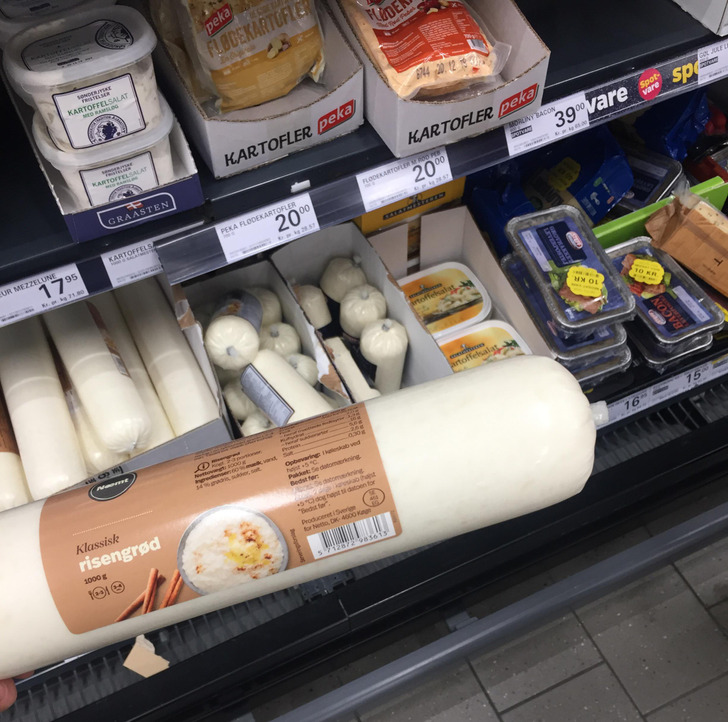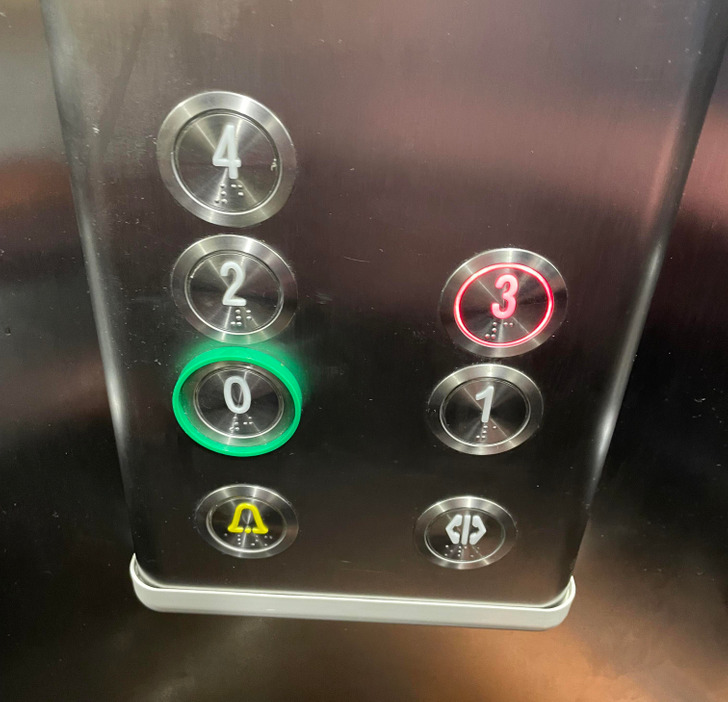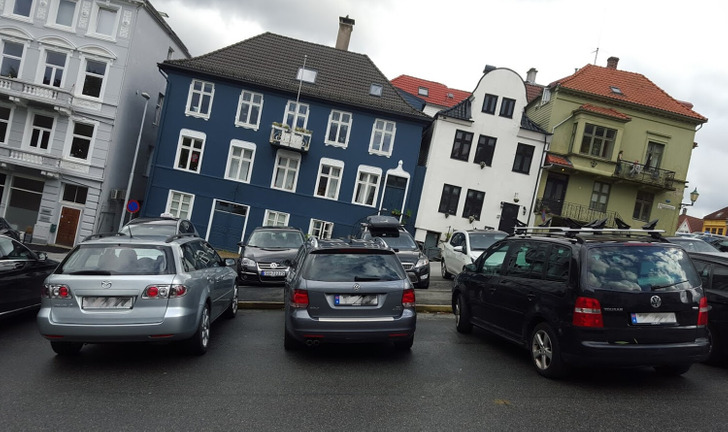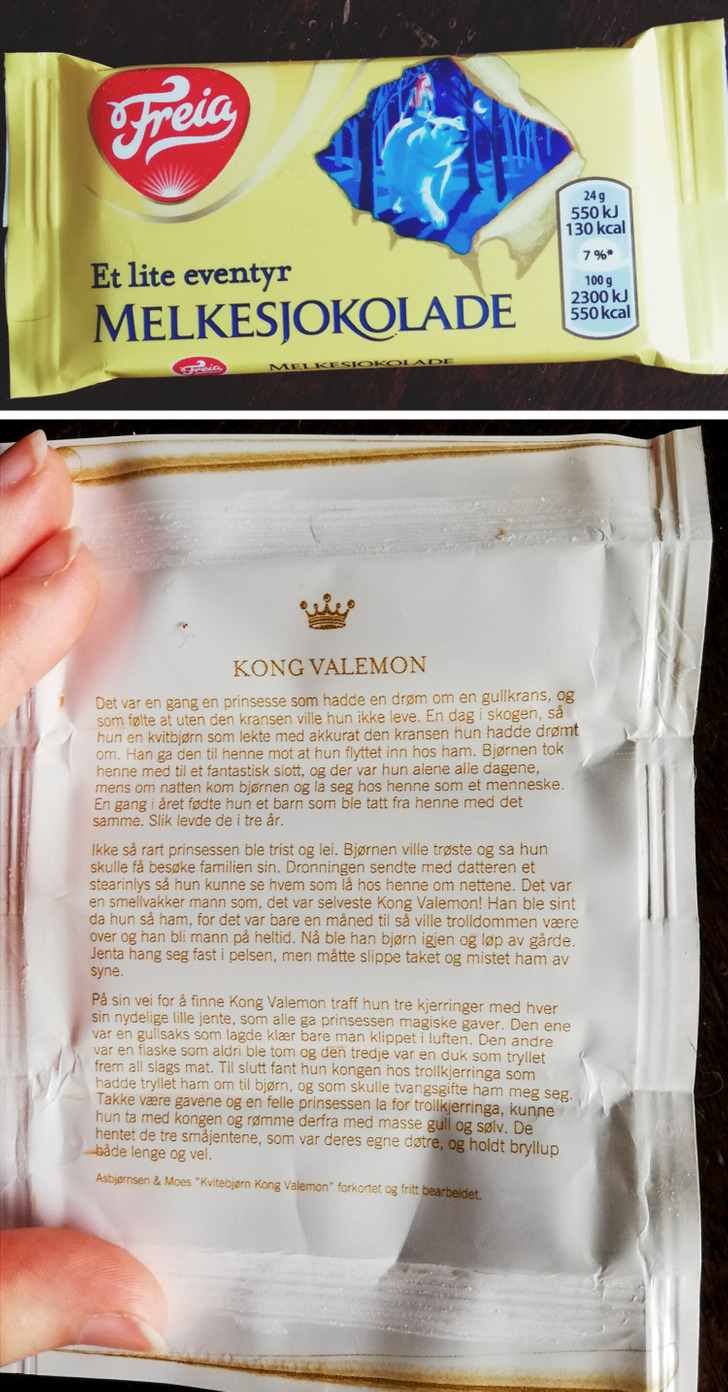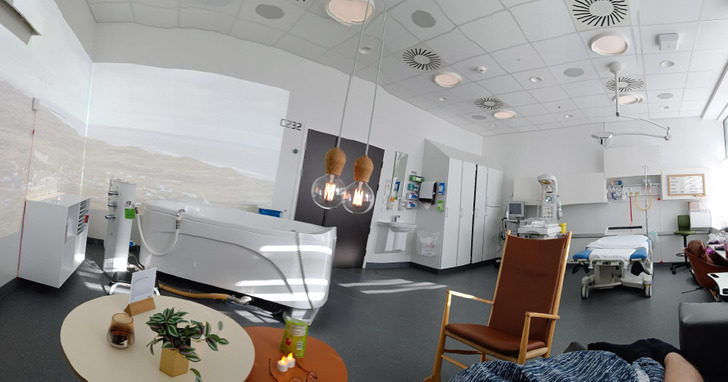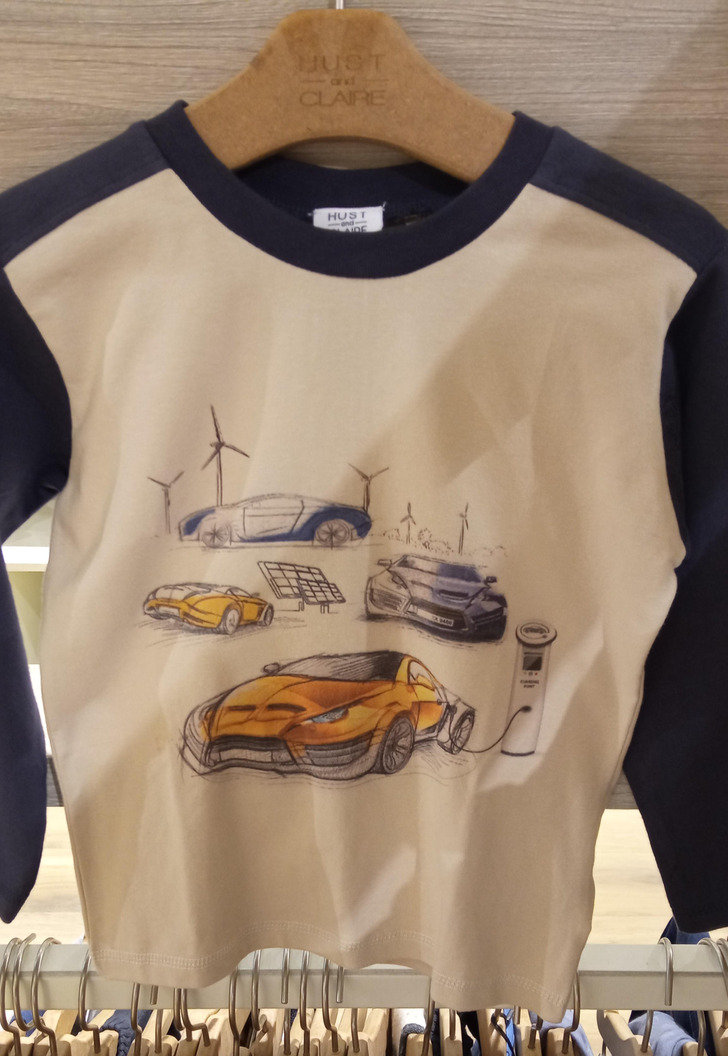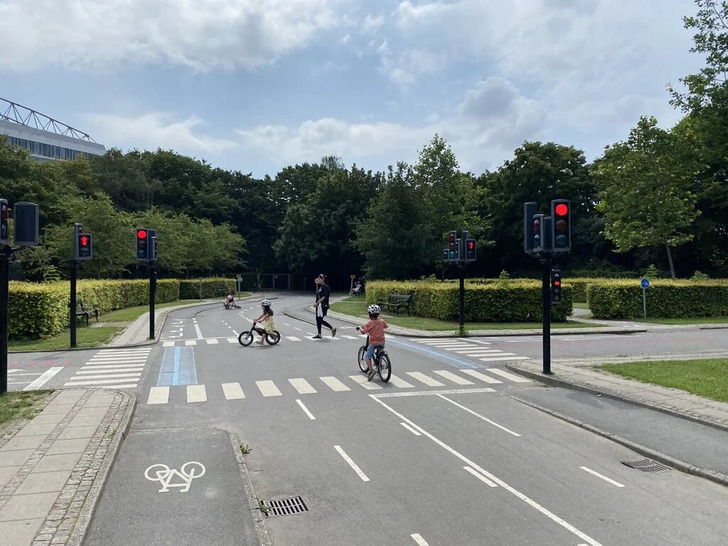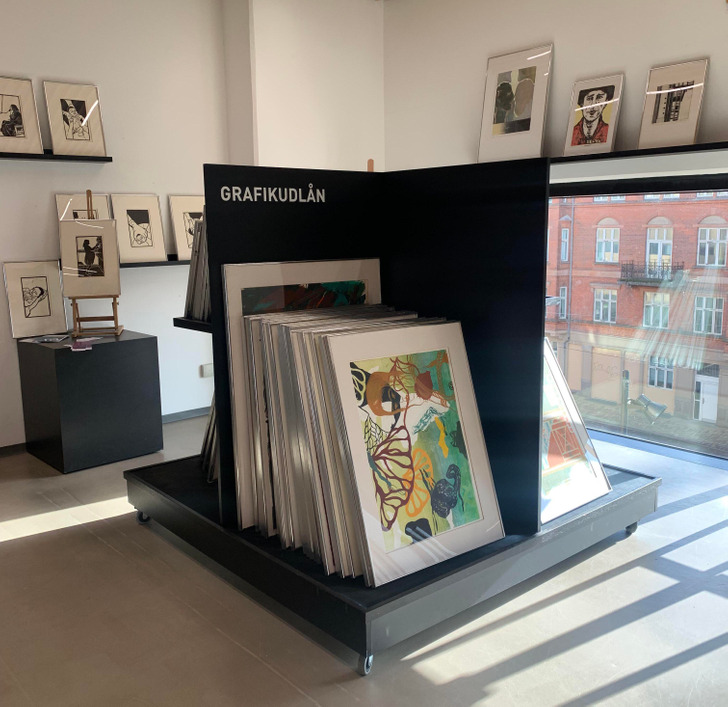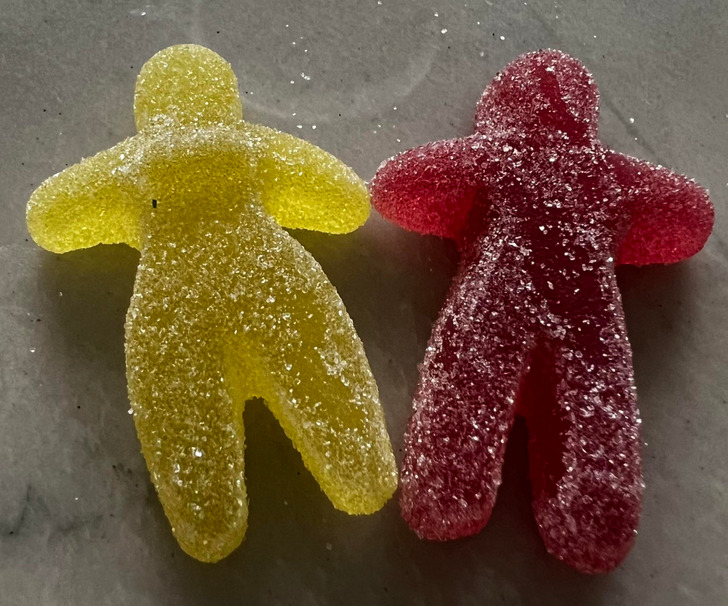Very interesting article, thanks Brightside.
20+ Facts About Scandinavians That Amaze Tourists as Much as a Snowfall on a Summer Day
If a Swede hugs you when you meet them for the second time in your life or a Norwegian responds to your attempts to start a small talk with a cold look and silence, don’t take their warmth or coldness personally. These are just peculiarities of Scandinavian culture, in which everything from food products to prints on children’s T-shirts has unique traits.
You can easily buy rice pudding instead of a sausage at Danish supermarkets. And they keep it not just anywhere, but right next to the meat products.
And here’s what ready-to-eat mashed potatoes with herbs look like in Sweden.
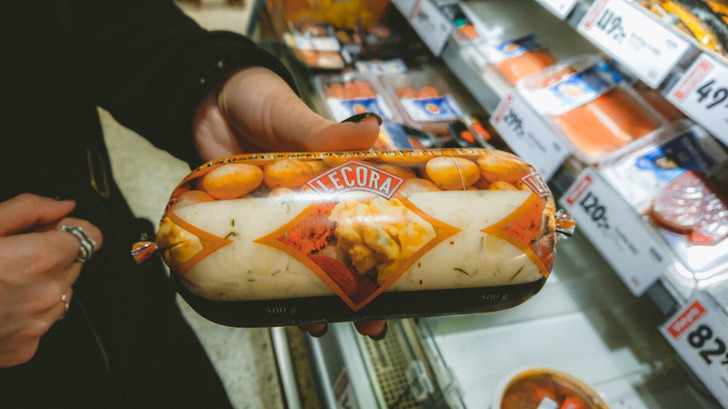
In Denmark, the floor count starts from zero.
And the Swedes prefer numbers to words.
For example, they wouldn’t describe their apartment as spacious or located in a good neighborhood, but they’d use the number of square meters. They would say you should turn left in 4000 feet when giving directions.
And even the weeks are described accordingly. Instead of saying, “I’ll take a vacation in June,” they’ll use, “I’ll take a vacation in week 26”. But everything is precise, and there is no ambiguity.
This is how the buildings on the hill were built in Bergen, Norway.
People in Norway don’t treat work the same way we do.
- I live in Norway. We discuss work at every lunch with my team. Once I said that it was strange and that we could discuss something other than work at lunch, but my colleagues didn’t understand me. There is a big difference between how we work and how people treat their jobs there.
In winter, Norwegian train conductors wear capes like superheroes.
In Sweden, people are more likely to hug you than to shake your hand.
This is unlikely to happen at the first meeting, but it’s quite possible at the second or third meeting. Handshakes are considered appropriate only for official situations.
If you buy this Norwegian chocolate bar, you can also read a fairy tale to your kids.
The maternity ward at a Danish public hospital looks almost like a hotel suite.
New parents have a few months to decide on the baby’s name.
- My Danish colleague just had a baby boy. I asked him about the name, and he replied:
— We haven’t come up with it yet.
A month later, we casually chatted over coffee and talked about our kids. I decided to find out what name was eventually given to his son, but my colleague said:
— Oh, we’re still thinking about it...
I was confused, but it turned out that in Denmark parents have up to three months to decide on the baby’s name. So you can pick it up right away or wait.
From a young age, Danish kids prefer cars powered by renewable energy to race cars. And local fashion brands support their passion.
And in Sweden, any parent of a child under the age of 8 can have a reduced number of working hours.
As long as their child is under 8, Swedish moms and dads can legally work 25 percent fewer hours. If a parent feels depressed after returning to work, they can spend more hours at home, and the employer can’t stop them from doing so.
Children have a lot of freedom.
Swedish moms and dads involve children in the decision-making process. A child can argue with their parents from an early age, and parents don’t make a big deal out of their children’s disobedience. Even though this approach fosters broad-mindedness, there is an opinion that it can hurt children, making them arrogant and unprepared for adulthood’s difficulties.
There are miniature playgrounds in Copenhagen that teach children traffic rules while they’re riding a bicycle.
In many cafes in Sweden, you have to be your own waiter.
- In Stockholm, I was surprised that even expensive local restaurants with gourmet foods expect you to come to the counter and place your order. And when the food and drinks are ready, you’re supposed to take them to your table yourself. Also, you usually pay in advance. The only exceptions are really luxurious restaurants. © Radomír Laučík / Quora
Many Scandinavians would rather create unnecessary difficulties for themselves than bother someone else with their request.
And it’s not about arrogance. On the contrary, it’s not common for Scandinavians to consider themselves special. Alexander Skarsgård noted this in his interview.
It’s just that Scandinavians are used to relying only on themselves and don’t like to bother other people. They are more likely to make a detour than to ask someone to step aside to let them pass, and they’ll carry their own suitcase instead of waiting for a porter to help them.
You can borrow a framed picture from a Danish library.
Work-related stress is an acceptable reason for Danes to take sick leave.
- I can think of 10 acquaintances who have gone on sick leave in the last three years because of stress. Danish people state heart palpitations, headaches, and poor sleep as the reasons for their decision. And managers working on tight deadlines aren’t the only ones stressed. A guy from a neighboring department, who didn’t put much effort into his work, stayed at home with a rapid heartbeat for two months because he couldn’t finish a simple task.
In Norway, they make jelly beans in the form of female and male figures.
Scandinavians have no concept of “awkward silence”.
- If a Scandinavian has nothing to say, they will say nothing. It wouldn’t occur to them to make “small talk” or to talk about some trivial thing to break the silence. I was chatting with a guy once, and when I paused to give him a chance to speak, he asked me, “Do you Americans ever shut up?” © Francis Vincent / Quora
Although Scandinavians are often unhappy with their weather, they genuinely enjoy their lives. And we can learn some things from them.
Comments
Related Reads
20 Pets That Are Amazingly More Humorous Than Their Humans

What 14 Celebrities Would Look Like Without Their One Unique Feature

Helen Hunt, 60, Stuns During Her Latest Appearance, and Her Lips Become the Center of Attention

What 10 Celebrities Would Look Like If They Had Never Tried Modern Cosmetology

Anne Hathaway Deemed Unrecognizable After Her Face Shocked Many in New Pics

People Online Noticed Brad Pitt’s New Partner Is a Spitting Image of Angelina Jolie

9 Subtle Signs That Someone Secretly Doesn’t Like You

“We Enjoy This Lifestyle,” A Mom Covers Her Baby’s Body With Tattoos and Defends Herself From Critics

How Swimwear Fashion Shows Shattered the Stereotypes and Showed Us the Beauty of Diversity

Keanu Reeves Finally Cuts His Long Hair, and His New Look Causes a Stir

“She Needs to Leave Her Face Alone,” Lady Gaga’s Latest Appearance Sparks Controversy

A Homeless Woman Receives a Full Makeover and Impresses the Whole World

